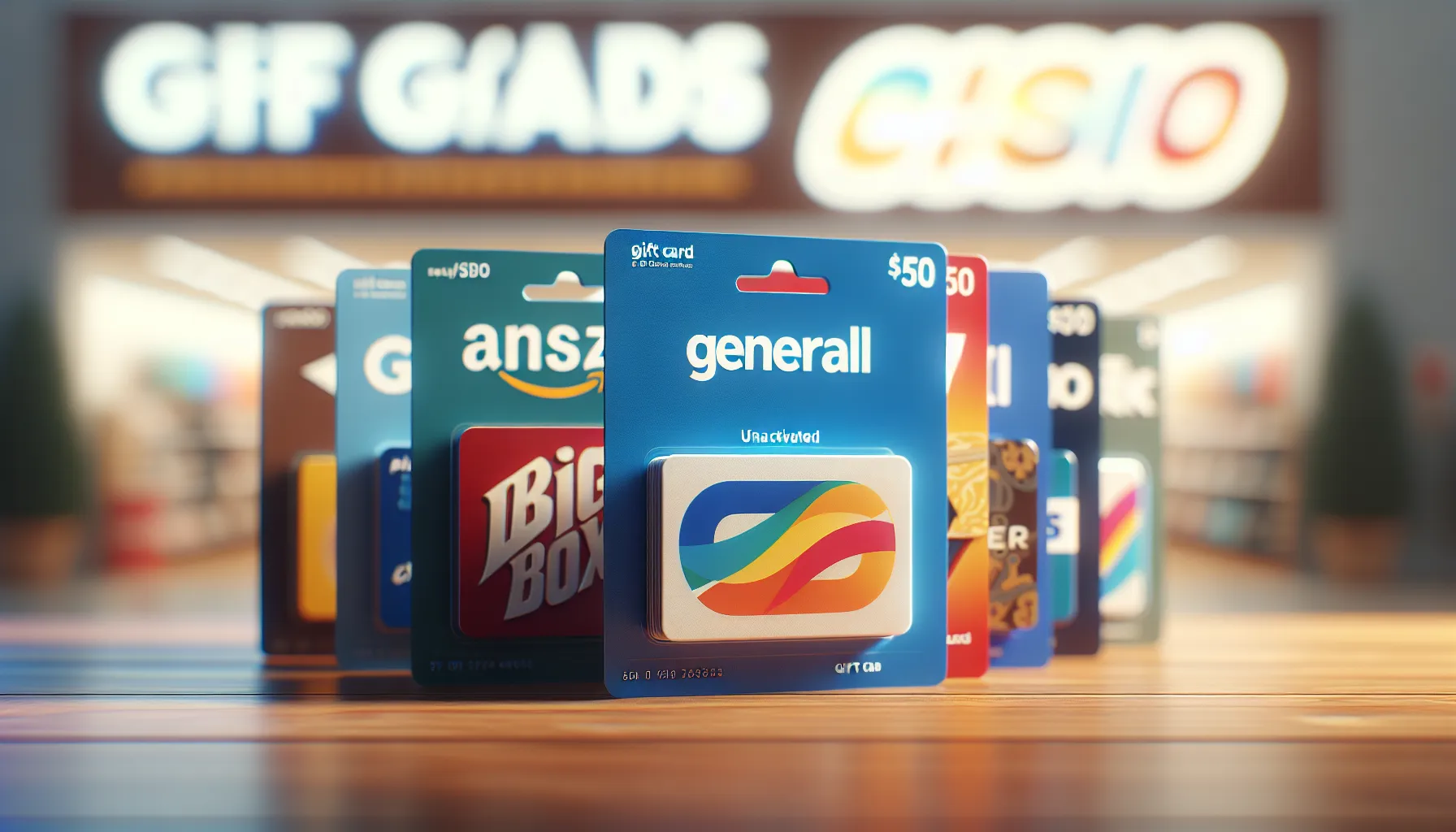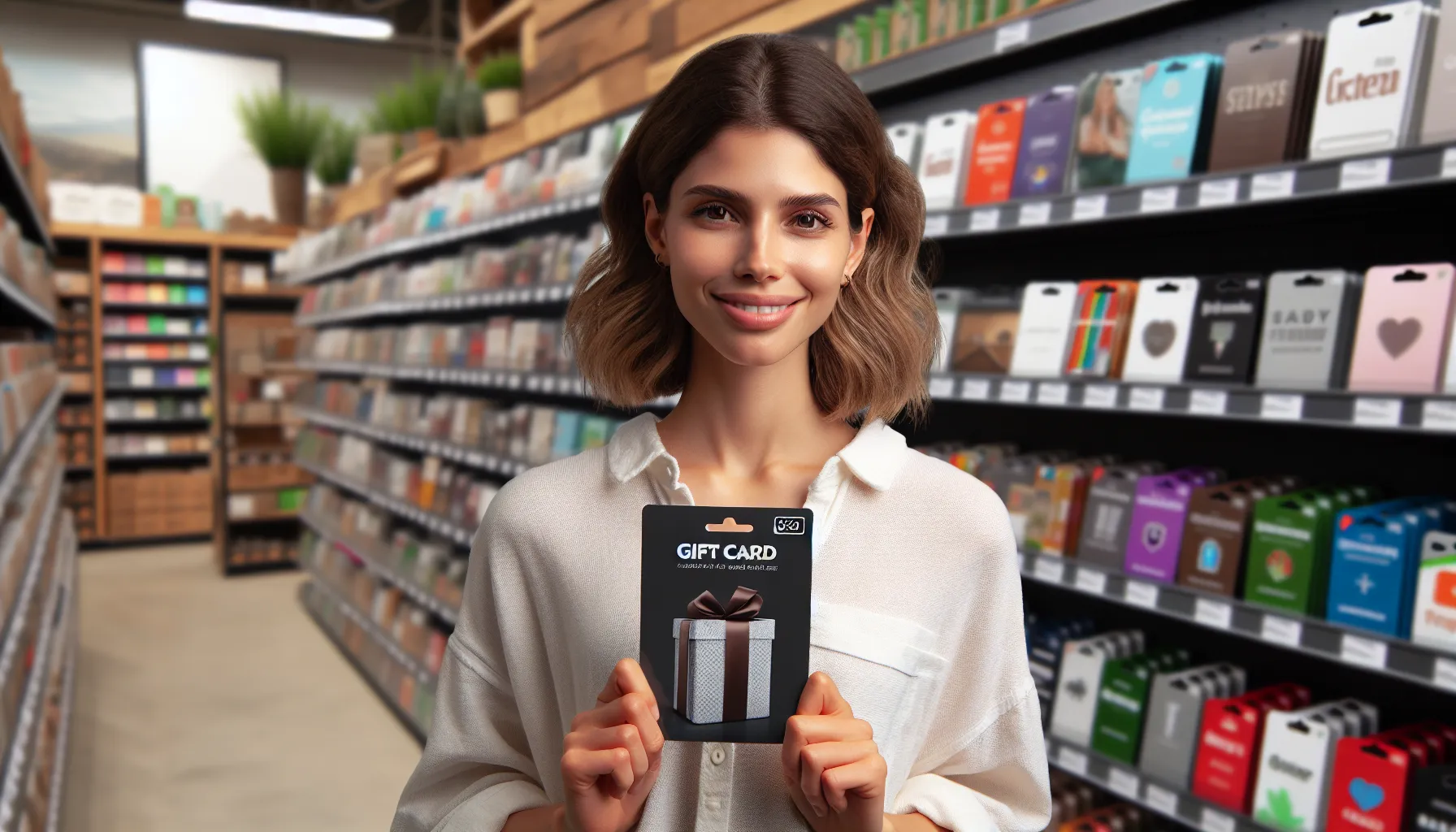Key Takeaways
- Retailers typically do not allow returns for activated gift cards; however, unused and unactivated cards may sometimes qualify for refunds or exchanges.
- Gift card return policies vary significantly between retailers, with some exceptions based on state laws, promotional offers, or seasonal policies.
- Popular retailers like Target, Walmart, and Amazon generally have strict non-returnable policies for gift cards, while stores like Costco may allow returns with proof of purchase for unactivated cards.
- Options for handling unwanted gift cards include selling or trading them on platforms like Raise and Gift Card Granny or donating them to charitable organizations.
- Federal and state regulations, such as the Credit CARD Act of 2009 and state-specific cash redemption thresholds, provide consumer protections but do not mandate gift card returns.
- Always verify the gift card return policy with the specific retailer and check for any applicable local laws or exceptions to optimize your options.
We’ve all been there—receiving a gift card we know we’ll never use or accidentally buying one for the wrong store. It’s a common dilemma that leaves us wondering, “Can I return this?” Gift cards are convenient and thoughtful, but when they miss the mark, figuring out what to do next can feel tricky.
I’ve found that returning a gift card isn’t always straightforward, and the rules can vary depending on where it’s from. Whether it’s an unused card burning a hole in your wallet or a gift that didn’t quite hit the spot, knowing your options can save you time and frustration. Let’s explore what’s possible when it comes to returning gift cards.
Understanding Gift Card Return Policies
Gift card return policies can vary widely depending on the retailer. Knowing the general rules and exceptions can help in determining your options.
General Rules Around Returning Gift Cards
Many retailers don’t permit gift card returns if the card has been purchased and activated. This policy prevents fraudulent activities and ensures card value. If allowed, the card often needs to be unused, with proof of purchase like a receipt.
Retailers like Target or Walmart generally don’t accept returns for activated cards, but some may exchange unactivated cards if unopened. Non-retail cards, like Visa gift cards, typically have stricter policies due to their usability across multiple merchants.
Exceptions To The Rules
Certain exceptions can apply depending on the retailer or card issuer. For example, state laws in some US states mandate retailers to redeem unused gift card balances below a specific dollar amount. Gift cards received through promotions or rewards might also have different return conditions.
Seasonal exceptions, such as during holidays, sometimes lead to more lenient gift card policies. For example, a seller might allow returns for unredeemed promotional cards if tied to a larger purchase and returned with the bought item. Always verify with the retailer to understand unique exceptions.
Retailers’ Gift Card Return Policies

Gift card return policies vary significantly, with each retailer having unique rules. Knowing these policies can save time and reduce frustration.
Popular Retailers And Their Policies
Retailers like Target, Walmart, and Amazon have strict policies regarding gift card returns. At Target and Walmart, activated cards aren’t accepted for returns, but unactivated cards may qualify for a refund or exchange if still sealed. Amazon gift cards are non-refundable once issued. Some stores, including Costco, allow returns of unactivated gift cards if proof of purchase is provided. Smaller retailers may offer more leniency, but verification of specific rules is necessary.
Online Retailers vs. Physical Stores
Online retailers, such as eBay and Etsy, rarely accept gift card returns, primarily to prevent fraudulent activities. Policies at physical stores often depend on whether the card is activated or unused. For example, unactivated cards might be exchangeable at select store locations but not through their online platforms. Checking whether return conditions differ based on how the card was purchased can clarify options.
Scenarios Where Returning A Gift Card Is Possible

Returning a gift card isn’t always allowed, but some circumstances can make it possible. These scenarios depend on factors like the card’s condition or specific problems during its purchase or use.
Unused And Unopened Gift Cards
Retailers may accept returns for unused and unopened gift cards. If the card hasn’t been activated and remains intact in its original packaging, some stores, like Costco, allow returns with proof of purchase. Policies vary, so I always recommend confirming with the retailer before attempting a return.
Errors Or Fraudulent Gift Card Issues
Mistakes or fraudulent activity might qualify for a return. Retailers often work to resolve issues like cards purchased in error or those compromised by scams. For example, if a card’s balance doesn’t match its expected value, contacting the retailer’s customer service team could help initiate a return or refund process. Proof of purchase is essential in these cases to verify the issue.
Tips For Handling Unwanted Gift Cards

Unwanted gift cards don’t need to go to waste. Consider these options to make the most out of them.
Selling Or Trading Gift Cards
Selling or trading gift cards provides a quick way to turn them into usable value. I often use online platforms like Raise, CardCash, or Gift Card Granny, where I can sell cards for cash or trade them for ones I want. Most platforms accept major retailer cards, though offers may vary depending on demand. For locally focused options, I explore community groups or marketplaces like Facebook Marketplace. When trading or selling in person, I always verify the card’s balance to prevent disputes.
Donating Or Gifting To Others
Donating or regifting is a thoughtful way to handle unwanted cards. I donate cards with remaining balances to charitable organizations, schools, or community groups, as many accept them for funding essential needs. Regifting can also be meaningful if I know someone who will appreciate the card more. I package it with care, ensuring the balance is valid before passing it on.
Legal Considerations For Gift Card Returns
Understanding the legal framework for gift card returns helps clarify options when policies seem unclear. Laws and regulations at both federal and state levels influence whether a return is possible.
Consumer Protection Laws
Federal laws primarily regulate gift card expiration dates and fees. Under the Credit CARD Act of 2009, gift cards issued for consumer use must remain valid for at least five years from activation. Fees, such as inactivity charges, cannot be applied until the card has been inactive for twelve months. While this law ensures fair use feasibility, it doesn’t mandate retailers to accept returns once a card is activated or used. Retailers include terms in their policies to comply, but return conditions still vary significantly.
State-Specific Regulations
Some states enforce additional laws to protect consumers. For instance, California allows redemption of any gift card with a balance under $10 for cash, ensuring small unused balances aren’t wasted. Similarly, states like Colorado and Maine have thresholds requiring cash refunds under specific amounts, such as $5 or $1, respectively. Other states don’t mandate such policies, so return options may be limited. Checking local regulations ensures clarity when facing restrictive retailer policies.
Conclusion
Navigating gift card returns can feel tricky, but there are options if you know where to look. Whether it’s understanding retailer policies, exploring legal protections, or finding creative ways to repurpose unwanted cards, there’s usually a solution that works. It’s all about staying informed and being proactive. With a little effort, you can make the most out of any gift card situation.
Frequently Asked Questions
Can I return an activated gift card?
Most retailers do not allow returns or refunds on activated gift cards to prevent fraud. However, some exceptions exist based on state laws or specific retailer policies. It’s best to contact the retailer directly to confirm their guidelines.
Are unactivated gift cards returnable?
Yes, many retailers, like Costco, may accept returns of unactivated gift cards if they are unused and you have proof of purchase. Always check with the retailer before attempting a return.
Which retailers allow gift card returns?
Policies vary widely. Physical stores like Costco may allow unactivated card returns, while online platforms like Amazon, eBay, and Etsy generally do not. Review individual store policies to confirm options.
What happens if my gift card has an error?
If a gift card has a balance issue or was purchased in error, retailers might help resolve the problem. Contact the store’s customer service with proof of purchase to initiate a refund or replacement process.
Can I sell or trade my unwanted gift cards?
Yes, you can sell or trade gift cards through platforms like Raise, CardCash, or Gift Card Granny. Make sure to verify the card’s balance to ensure a smooth transaction.
Are gift cards refundable during the holiday season?
Some stores may ease return policies for gift cards during holidays, especially for unactivated or unopened cards. Check seasonal return policies for better flexibility.
Can I redeem a small gift card balance for cash?
Certain states, like California, require retailers to redeem gift card balances below a specific amount in cash. Check local laws to understand your eligibility for cash redemption.
What does the Credit CARD Act of 2009 say about gift cards?
The Credit CARD Act mandates that gift cards must be valid for at least five years and limits inactivity fees. However, it does not require retailers to accept returns for activated cards.
What should I do with unused gift cards?
If you cannot return the gift card, consider selling, trading, donating, or regifting it. Verify the card’s balance and expiration date before passing it on.
Can I get a refund for a fraudulent gift card purchase?
If a gift card was fraudulently purchased or has a balance issue, contact the retailer immediately. Providing proof of purchase is essential for resolving such cases.